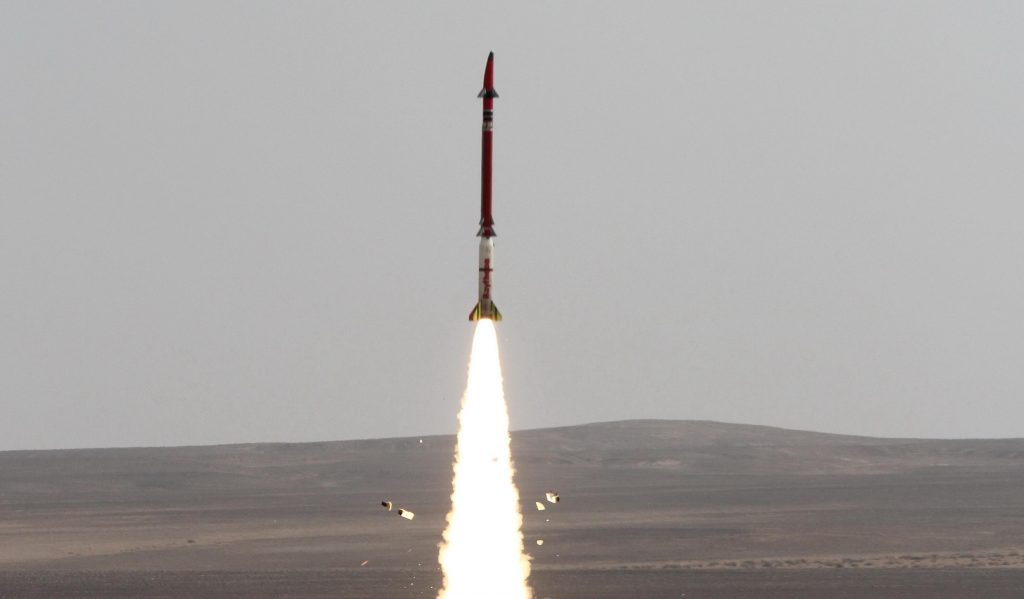Israel Chafes As US Reported To Block David’s Sling Export Bid
Posted on
TEL AVIV: The United States has apparently pressured Israel to keep its David’s Sling anti-missile system out of a Swiss competition for an anti-missile system in favor of Raytheon’s Patriot system
The Swiss asked for bids and, we’re hearing, the US expressed concerns to Israel. As a result the Israeli maker of David’s Sling, Rafael, did not submit a bid. Israel, as this story makes clear, really does want to bid for the Swiss competition.
“This situation is only the tip of the iceberg,” a senior Israeli defense industry source told Breaking Defense on April 28. “Israel, with all its gratitude to the U.S, cannot surrender easily as was the case here,”
Behind the strange situation there is a very deep built-in and unresolved ambiguity, that is part of the vast and complicated defense relations between the U.S and Israel.
The first big acquisition clash between the two countries was in the 1980’s when the U.S killed the Israel Lavi fighter aircraft program. This happened after Israel had built three prototypes and they were in advanced test flights.
Next came the proposed sale of the Israeli ballistic missile interceptor, the Arrow, to South Korea. Here again Washington said no. The South Koreans persisted and demanded that they be allowed to buy the system’s Green Pine radar. They succeeded.
The most recent example is when Britain decided to buy an advanced AEW systems. Israel offered a system made by Israel Aerospace Industries (IAI) integrated in a G-500 business jet. The British did not even consider this proposal and bought Boeing’s Wedgetail E-7.
In this latest tussle between the two close allies, when the Swiss government decided to procure new advanced aerial defense systems that can cope with medium range rockets and missiles it issued a tender. The RFI was sent to Rafael, to Raytheon and to the French company that makes the Eurosam.
The Swiss need advanced systems to replace the Bloodhound BL-64 surface-to-air missile.
Earlier this year Raytheon made an official proposal for its PAC-3 Patriot. Eurosam offered the SAMP/T system, using the Aster 30 missile. The Swiss government was surprised when it did not receive a Rafael proposal. This came after the company’s officials were told in non-official talks that the David’s Sling was “tailored ” to the Swiss operational requirements.
And from this point, the war began with the fighters hiding under the most advanced camouflage systems.
A senior Israeli rocket and missile defense expert, told Breaking Defense that there is no doubt that the Israeli system is the one that “fully” answers the Swiss operational demands.
He added that, as in the previous cases above, the signs are that Israel was “told” by Washington not to make an official bid.
“The Israeli system was developed with the help of the U.S FMF (Foreign Military Financing) funds, and in spite of the fact that Raytheon is the partner of Rafael in David’s Sling program, the U.S administration sees the interest of the American companies.”
Another source described this as “a very harming situation for the Israeli defense industries.”

Patriot missile launch
While the publicly-held defense companies in Israel can try and resist such a “stay aside” demand, government defense companies such as Rafael can’t. Sources in some of the companies said there were ways for Rafael to join the Swiss competition but the Ministry of Defense “simply failed to use the opportunity.”
The Defense Ministry spokesperson was reluctant to comment on the situation, as was the spokesperson for Rafael.
Top defense sources told Breaking Defense that there is a very “slight possibility” that Rafael will be given a chance to compete. The sources pointed to some urgent meetings between “involved parties” that took place recently as an indication that the situation might change.
This all occurs in light of changes the US is demanding from Israel in how it uses US aid.
In the past, when the US provided Israeli with grants under the FMF program, Israel could convert 25 percent of the aid from dollars into shekels to buy Israeli products and support local R&D. But under the new 10-year FMF agreement signed in 2017, that percentage will gradually drop over time to zero.
Under the new agreement signed in September 2016, the US will pay Israel $34 billion over the decade from 2019 to 2028 — but eventually all FMF funds will have to be used for the purchase of US-made systems. Combine that with President Trump’s Buy America efforts and Israeli arms exports may face major obstacles in the future.
Subscribe to our newsletter
Promotions, new products and sales. Directly to your inbox.

